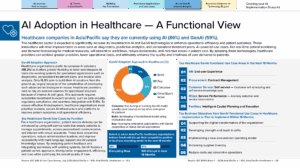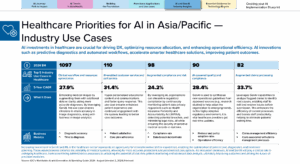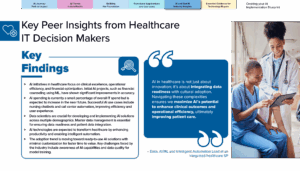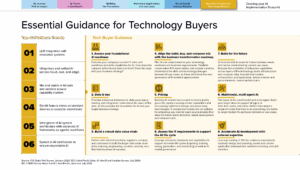The Asia Pacific region holds immense potential to lead the way in AI adoption and innovation. Now is the time for enterprises to move beyond proof of concept and focus on achieving measurable return on investment,” says Dell Technologies’ senior VP Chris Kelly.

As AI adoption accelerates across the Asia Pacific, organisations are taking a more strategic approach to integration, focusing on GenAI use cases that enhance operational efficiency, boost productivity, and deliver personalised customer experiences. Generative AI is already being used by nearly 60 percent of healthcare companies within the Asia Pacific region to enhance diagnostics, predictive analytics and personalised treatment plans according to a Dell/Nvidia sponsored survey.
It showed a little more than 58 percent preferred composing AI solutions and tailoring them to specialised needs like diagnostics. AI-driven examples such as real-time patient monitoring and demand forecasting streamline workflows, reduce errors and improve patient care.
Healthcare providers across the region tend to use external vendors to help address AI skills gaps and regulatory complexities. For example, CSIRO’s Virga, a high-performance computer cluster built in collaboration with Dell Technologies, is working with the Queensland Children’s Hospital to train AI models to diagnose pathology from MRI scans of the lungs in children with cystic fibrosis.
Two thirds of the companies surveyed believe GenAI will disrupt their business models within 18 months. This means AI investments are expected to increase quickly – particularly in clinical excellence, operational efficiency, and financial optimisation — enabling a transformative shift in patient care and treatment planning.
AI implementation is not without challenges – businesses continue to grapple with a shortage of skilled talent, particularly in developed markets where competition for AI expertise drives up costs.
The success of AI initiatives hinges on the availability, quality and governance of data. Addressing these factors through a combination of internal investment and external collaboration is the key to unlocking AI’s full potential.
“The journey to consistent ROI is complex and requires comprehensive support across every stage—strategy, use case development, data preparation, governance, optimisation, and scaling AI implementations.
“With the support from technology partners, enterprises can overcome adoption challenges and accelerate their path to impactful, results-driven AI outcomes,” Kelly says.







